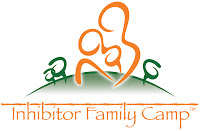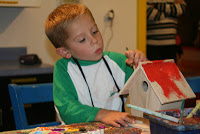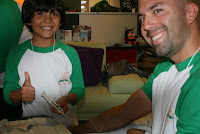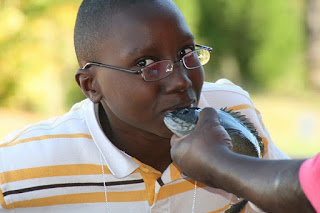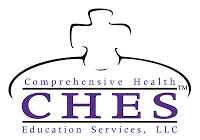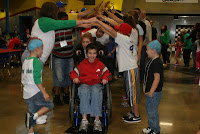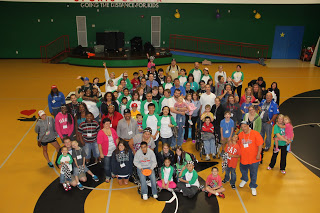Laurie Kelley
January 9, 2012
Camp is coming early this year!
US hemophilia families with inhibitors are invited to apply for the third Inhibitor Family Camp weekend to be held April 13-15, 2012 at The Painted Turtle Camp in Lake Hughes, CA.
This program, run by Comprehensive Health Education Services (CHES) and sponsored by Novo Nordisk, is designed for families with a child age 6‐19 with an active inhibitor. These camps are special: children with inhibitors often report that they cannot participate in many of the activities offered at a traditional hemophilia camp due to the threat of injury. Or that if they do choose to participate, they may spend the rest of the week in a wheelchair watching from the sidelines.
Inhibitor Family Camp provides these children and their families an opportunity to come together with their true peers in the hemophilia community.
Space is limited so all registration materials must be completed in full by February 17, 2012. There is no cost to families associated with Inhibitor Family Camp. For additional information, please call Comprehensive Health Education Services at 877-749-2437 or visit www.inhibitorfamilycamp.org.
Great Book I Just Read
Steve Jobs by Walter Issacson (Kindle version)

This is an incredible read, quite possibly the best book I read in 2011. Not a perfect book, however, because there are gaps, almost as if Issacson rushed to get it out following the death of Jobs on October 5. Issacson was asked by Jobs to write his biography, and despite Jobs’s well known control issues, gave full control to Issacson, and engaged in 40 interviews with him. Issacson also interviewed Jobs’s family, coworkers, enemies, friends and wife.
This 600 page tome traces Jobs from his birth, adoption, and early childhood years all the way through his stint at Reed College, dropping out, founding Apple in his father’s garage, and the impact his adoptive father had on his curiosity about all things electrical and his father’s love of perfect workmanship, as we see in Apple products today. It’s almost two books in one: a fascinating account of the rise of the personal computer industry in Silicon Valley, and the infamous competition with Bill Gates and Microsoft (hard to believe Jobs and Gates were born in the same state, same year!). For those of us who lived through these years, it brings back memories and completes a story. For the new generation who takes these marvelous machines for granted, this history is a must read.
The other “book” is a searing account of Jobs’s psyche: his infantile approach to managing people, his tirades, temper tantrums, his eating disorders, control issues, his obsessive perfectionism, his total lack of empathy, his need to squash others’ self-esteem. If there is one psychological term you can hang on him, it’s narcissism. He was a genius, a visionary who saw things before they were built, who knew exactly what he wanted because he could already see it before him when no one else could. He invented an industry that has completely changed people’s lives and the course of history. He didn’t do market research to find out what the customer wanted; he knew what people wanted. He created need. But he left a scarred and brutalized wake, and no doubt his children will tell all one day. I have been an Apple customer since the 1980s, from day 1. I love the products, the marketing, the beauty of the machines, the integrated approach to everything Apple makes. They make intuitive sense, and Jobs knew this. He knew so much, saw so much, and had he lived, his impact would have been even more tremendous. I couldn’t help but feel sorry for his children, and have no doubt that his cancer originated from his chronic high stress levels and internal obsessions. When you go into an Apple store next time, look at the Restroom sign. The grey color took a team, including Jobs himself, 30 minutes to decide what shade of grey. Jobs involved himself at every level. When you live your entire life to that extreme, it takes its toll internally. What price genius? This book seems to mournfully ask that, while at the same time, marveling at an extraordinary man who led a great team that changed the world. The frustrating part comes when even Issacson, for all he interviewed Jobs 40 times, still could not but scratch the surface was what drove this man. No doubt, Jobs wouldn’t let him in; maybe no one got in. Five/five stars.


